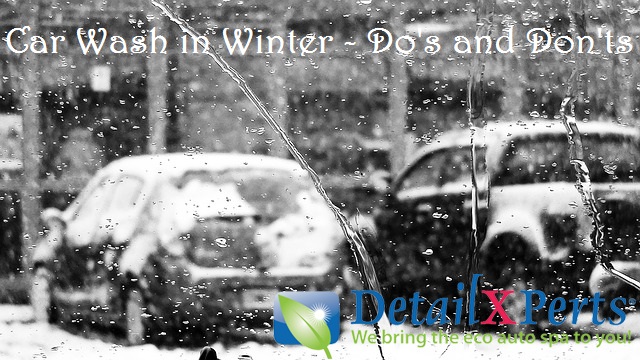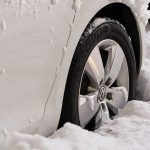Car Wash in Winter – Do’s and Don’ts
-
 January 13, 2014
January 13, 2014Keeping your car clean in bad weather can be next to impossible. So one could imagine what it would be like to make car wash in winter. With the weather changing everyday and road dirt becoming filthier with each change, you will soon be faced with the prospect of driving a vehicle that is no longer recognizable. Having to have your car washed in winter seems like a futile activity, but it’s actually necessary if you want to recover your car’s good looks as well as keep its functionality, despite the bad weather conditions.
Winter car care
Your car takes a lot of beating during the cold winter months. In addition to the usual mix of muck and grime, your car must also contend with the highly-abrasive road salt that has been sprinkled along to melt the snow. Apart from its abrasive properties, road salt can also speed up your vehicle’s oxidation process, making it more vulnerable to rust in wet weather. Road salt can de-ice the highways, but it can also de-paint your car if you are not watchful.
The good news is that while winter wash can take a little more time than your usual wash routine, it’s still an easy and simple chore to do. If you live in parts of the country where snow is a way of life and not a weather condition, a car wash in winter should be at the top of your vehicle maintenance list to ensure that it will be safe to drive even in blinding snow.
Here is a short list of practical tips that you can follow when the first snowflakes of the season show up. Keep in mind that your vehicle requires protection no matter what the weather may be. If you want to ensure you and your passenger’s safety on the road, keep your vehicle in tiptop condition all the time.
Car Wash in Winter – Do’s
Do Use a Paint Sealant
As already noted, road salt is your car’s number one enemy during the winter season. You can combat the oxidative powers of road salt by applying paint sealant in mid-autumn, just before the first frost sets in. Pick something with long-term protection, even though it may be a little expensive. This way, you will need fewer applications until winter is finally over.
Do Pay Attention to Your Wheels and Tires
The reason why road salt has been in use since the early days of automobile transportation is that it is the most cost-effective way of keeping roads safe during snowy months. Few car owners invest in fitting their cars with winter tires, so road salt is still the best method to encourage tire traction. However, if your car’s tires are already bald or if the pressure is below normal levels, no amount of road salt can help you. Clean out the tires, check them for correct pressure and balance, and use a wheel glaze after a thorough washing. You want to prevent your rubber tires from cracking during the frozen weeks ahead.
Do Pay Attention to Your Windshield Wipers
When driving through a road with little to zero visibility, you want to be able to look out the windshield and discern what the shapes in the dark are. A clean and frost-free windshield is what you need. You can use either an ice scraper or a de-ice spray to help remove the snow and ice.
Car Wash in Winter – Don’ts
Don’t Leave Your Car Parked Out in the Open
This should be a no-brainer. However, far too many car owners decide to leave their cars parked in the driveway overnight because they think that snow will not fall too hard, only to find their vehicles turned into a white mound the next day. This is certainly a nightmare if you are planning to perform a car wash in winter. If you absolutely have to park outside, use a car cover to protect the vehicle. Of course, it goes without saying that you should not wash your vehicle in the driveway during winter, as it would create dirty runoff that you simply cannot get rid of.
Don’t Forget to Top up Your Antifreeze
Now that you know how to wash your car properly during the cold winter months, be ready to check your fluid levels. Antifreeze, engine oil, and brake fluid should all be in sufficient supply.
Don’t forget to sign up for our newsletter if you want to receive a regular flow of fresh ideas, tips, and perspectives from the professionals.















